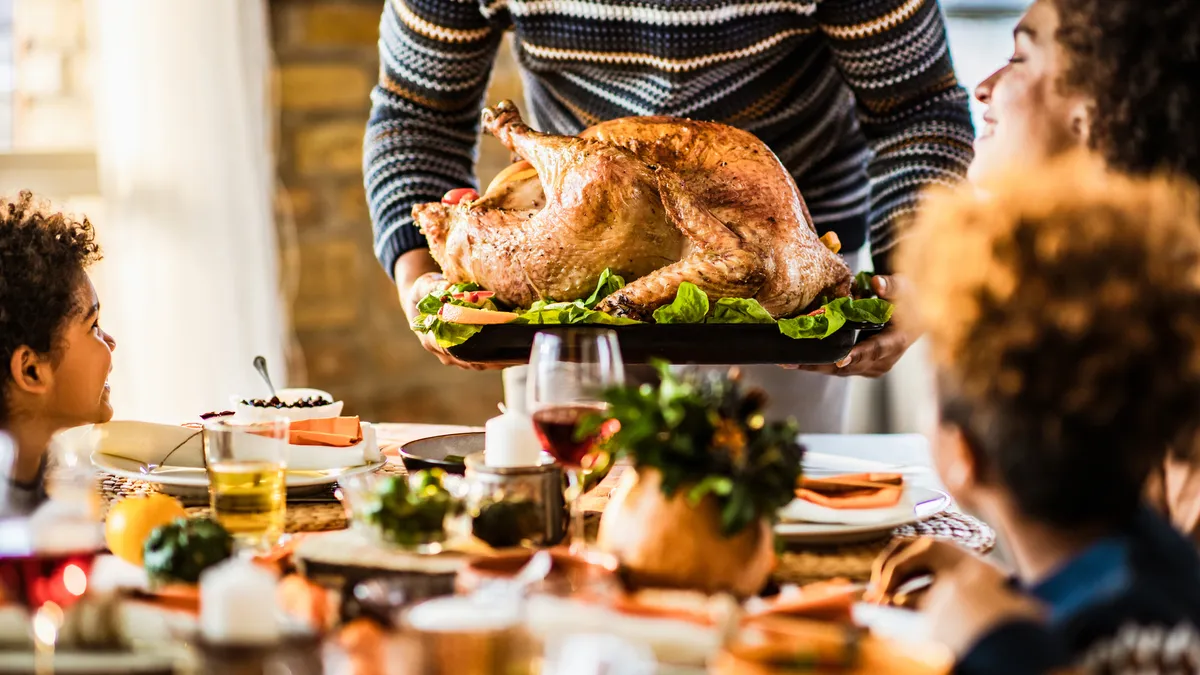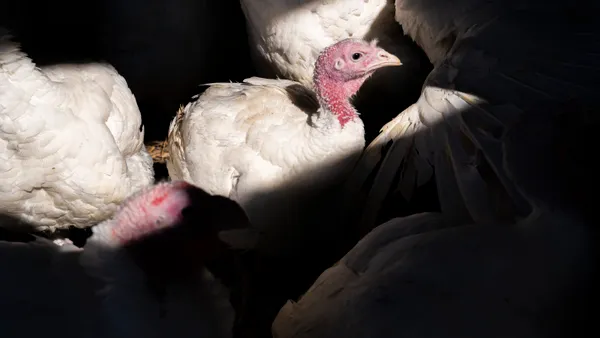Dive Brief:
- Turkey prices may be lower than last year ahead of Thanksgiving, according to a report published last week by the American Farm Bureau Federation. The price for turkeys weighing between 8 to 16 pounds was $1.27 per pound in August, down 22% from the same period in 2022.
- Producers have worked to repopulate turkey flocks after the outbreak of highly pathogenic avian influenza in 2022. The number of birds affected by HPAI has dramatically decreased, falling to just 540 in September compared to 8.15 million a year ago, according to the report.
- Despite this, the virus has reemerged in recent weeks and could hamper supply again as the weather cools. Three turkey operations have reported flocks affected by the virus so far in October, affecting a total of roughly 329,100 birds, according to data from the U.S. Department of Agriculture.
Dive Insight:
After facing sticker shock caused by the supply effects of HPAI breakouts as well as overall inflation last year, poultry consumers will likely feel some relief this holiday season.
Farmers, retailers as well as consumers dealt with significant price increases for egg and poultry items last year. The number of commercial poultry flocks affected by the virus increased throughout 2022, with monthly detections peaking in March at 20.96 million birds, before softening some this year, according to the report.
The massive culling of flocks helped curb the virus in migratory birds. Roughly 59.17 million commercial and backyard poultry flocks have been killed since early 2022, according to USDA data.
HPAI driving up turkey prices last year had a significant impact on the bottom line for meat producers, who have spent 2023 trying to manage their supplies.
Hormel, a maker of Jennie-O turkeys, said it identified infected turkeys in its supply chain in March 2022. This caused an 80% year-over-year drop in turkey volumes, and the decreased capacity led to a 2.4% annual decline in the meat giant’s overall sales. In Hormel’s latest quarterly earnings call, CEO Jim Snee told investors that turkey volumes have improved, but segment profits are projected to be slightly down in the fourth quarter due to lower prices.
As producers deal with the continuing threat of the virus, scientists are working toward solutions to prevent infections from occurring. In a study released by MIT Technology Review this week, researchers used gene-editing tool CRISPR to alter the DNA of ten chickens to resist HPAI. Only one chicken was infected with bird flu, and it did not transmit the virus to other birds, according to the study.
Nathan Owens contributed to this report.












